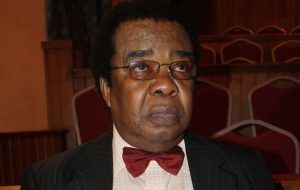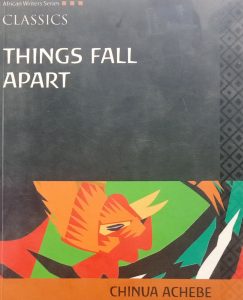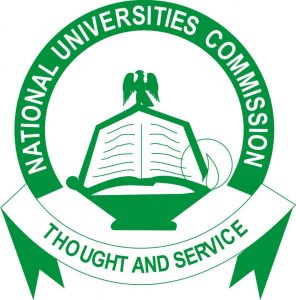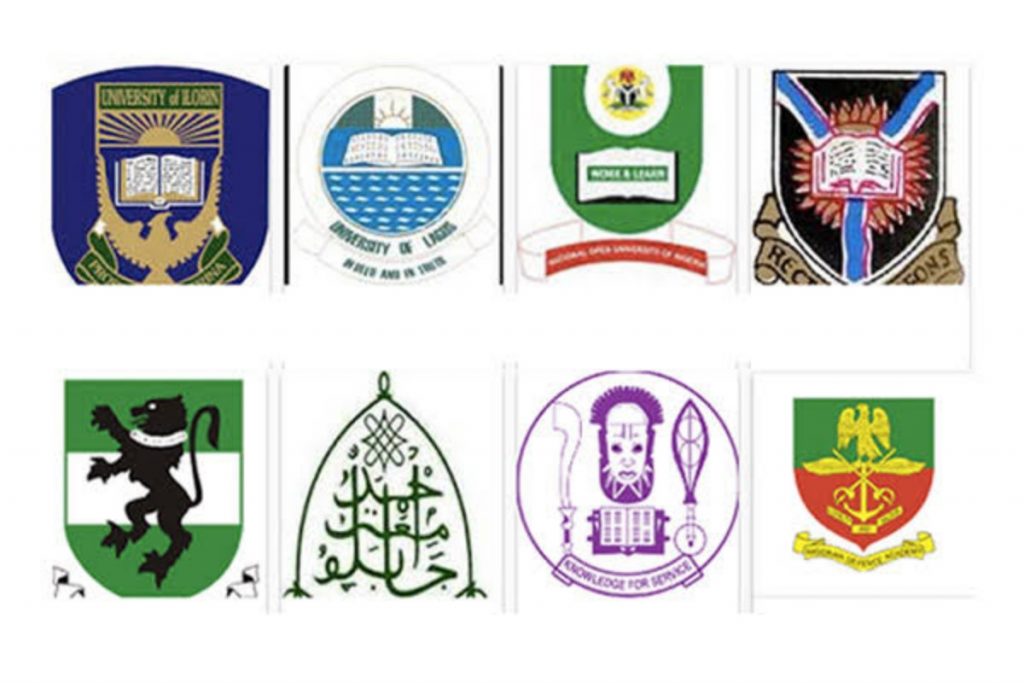Intervention’s commitment to emancipation compels it to keep an eye on knowledge production, knowledge being a form of representation and representation being a form of power vis-à-vis emancipation. So, those who wonder what concerns a media platform with what is going on in the universities ain’t seen nothing yet..
In focusing on spaces of knowledge production across the world in the last five years of our existence, we have found one very particular respect in which Nigeria and the United States of America are absolutely comparable. Both countries do not know how to think small. The smallest challenge to any of them is thought of in the most extravagant sense. Thus the crisis of missing ‘Philosophy of Science’ in the Nigerian university system has been thought of in terms of huge sums of money and costly strike actions over the years with neither the Nigerian State and certainly not the state owned regulator – the National Universities Commission, (NUC) nor the Academic Staff Union of Universities, (ASUU) thinking of the problem as what could be rapidly corrected without much bad blood.

One exception in thinking great of Nigeria in the grand scheme of things, always

Education Minister, Mallam Adamu Adamu
Today, the crisis risks degenerating to where all manner of binary configurations could complicate matters: older versus younger universities; private versus public universities; state-owned versus federal universities; faith based versus secular universities. None of that would help anybody because it takes attention away from the fact that the universities have been left to rot because successive Nigerian governments have no good idea of the university factor in materialising the country on a global scale. So, the view of the universities as a space of troublesome elements has predominated. It will remain so until Nigeria’s self-understanding attains the scale of a global power. Until then, the Nigerian State will continue behaving very badly, particularly in organizing the universities as an instrument of national power.
ASUU did got very close to the way out by stressing access to journals in its demands but the problem had assumed the dimension whereby many academics no longer understood much of the literature in their discipline emanating from metropolitan academia. In that circumstance, access to journals no longer meant anything as far as solution to the crisis goes.
Yet, it is metropolitan academia that sets the agenda within the context of unequal power relations between the global north and global south. Knowledge as an instrument of global power rather than just social mobility for individuals in the countries of the global north has meant that they keep problematizing what they know. What that means is that, as they keep fine-tuning knowledge claims as a condition of possibility for hegemony and domination, so also does the knowledge gap, for example, between OECD countries and much of Africa widens. So, in Nigeria, just to cite an example, we produce PhDs who cannot understand their counterparts in Europe and North America because the ‘Philosophy of Science’ gap is so wide and the gap keeps widening.
In the period before the end of the Cold War, this was not exactly the case because both the global north and south were, to a great extent, on the same page as far as meta-theory was concerned. Neo-positivism was the dominant approach to the ontological-epistemological universe. The Enlightenment schema for knowledge production was what everyone was studying except courses such as Literature which had more diverse ways of doing this.
Both the radical (such as Marxism) and the conservative (neorealism in International Relations, for example) spectrum in neo-positivism subscribe to the rationalist notion built up by Descartes after his ‘radical meditation’ – I think, therefore, I am. Enlightenment philosophers found in Rationalism the ultimate instrument for undermining hegemonic monarchy in Europe by the progress through science and truth which Rationalism privileged. The idea of what science can prove as the only way to truth and progress as opposed to ‘the divine right of kings’ made Rationalism such a successful blending of methodology and politics.

Achebe, a product of the Nigerian university system then wrote Things Fall Apart that wrecked Joseph Conrad’s imaginative geographies of Africa

What do Nigeria see when she looks back in relation to going forward?
It thus did not matter very much whether one studied at the University of Ibadan or Stanford University in California in those days. Whatever differences were not that substantial, methodologically speaking. Neo positivism ruled the world almost unchallenged. This is not to make light of the rebellion of the Achebes in Things Fall Apart and the seeds of postcolonial theory he was sowing there. It is just that the radical Marxist spectrum of Neopositivism/Rationalism found greater purchase in most postcolonial societies than alternative views in terms of how social reality might be comprehended. In any case, Achebes was a post-independence affair, many centuries after positivism had firmly consolidated.
But there was a problem with Rationalism and the positivist meta-theory. The Cartesian foundation upon which Rationalism was erected came along with a big question mark on the kind of knowledge it could produce. The idea of a world independent mind being able to know a mind independent world was that weakness because there is no intervening variable that can confirm or disconfirm that sort of knowledge. There is no way of being sure about such knowledge, bringing about what is now known as Cartesian anxiety in the ‘Philosophy of Science’, trailing all knowledge claims by Neopositivism, including its radical spectrum such as Marxism and Critical Theory to an extent.
One stands to be corrected but it was the socialists on the run from totalitarianism and Fascism (the Frankfurt scholars) who first brought this out categorically in their critique of the Enlightenment philosophy, saying that Enlightenment thinking was the problem right from the beginning because it is a programme for overcoming anxiety and mastering domination by resorting to models of power that ordinary people could never control. That Rationality is inherently about control, not about the progress and any of the lofty ideals Enlightenment thinking talked about. What is wrong about rationalist thinking undergirding Enlightenment is, in their view, instrumental reasoning and the associated craving for formulae for managing anxiety arising from uncertainty about subjectivity, propelling Socialism in the same direction as capitalism towards systems of rule that degraded human beings and then the crash.
From the late 1960s onward, the seven French thinkers – Michel Foucault, Jean-Francois Lyotard, Jacques Lacan, Jean Baudrillard, Gilles Deleuze, Felix Guattari and Jacques Derrida – now more known as postmodernists struck, further rupturing Neopositivism by arguing that there is no such thing as facts in themselves that were not interpretation by human beings. And, if facts are always someone’s interpretation, it then means that science itself the way Enlightenment thinkers saw it is no more than mediated representation of reality. All representations of reality are suspect, they argue though on different wavelengths, meaning that there is, indeed, the truth but discovering it does not come from careful research in terms of things we can touch, see, feel or hear as the Neopositivists say. Rather, truth is very, very specific and contingent and the best way to discover it is, as far as Derrida, for example, is concerned, by deconstructing the language that people use. Every such language has the speaker’s preferred meaning but also an ‘absent’ meaning – the ones suppressed by the truth stressed by the speaker in a social space that is discursive in character. This is what many people call postmodernism even as some of the French theorists mentioned above never thought of themselves that way.
Interestingly, Postmodernism or Poststructuralism – the proper name for the Deconstruction provoked by Derrida – have an African context in that it was their experience of the brutality of the Algerian War of Independence that gave them the empirical details for their theoretical gunshots, especially Foucault and Derrida. Today, all such gaze that challenged Enlightenment thinking and the research techniques they brought into being fall into the post-Positivist meta-theoretical framework. These are Poststructuralism, Feminism, Postcolonial theory where Edward Said made his mark with his theory of Orientalism or imaginative geographies and Decolonial theory, each with its privileged research techniques such as the many variants of Discourse Analysis, Snowballing, Key Informant Interviews, In-depth Interviews, FGD, etc.
To emerge as such was big battle between 1988 when Robert Keohane read the ‘Riot Act’ to opponents of Neopositivism and 2010 when Patrick Thaddeus Jackson published the first edition of his The Conduct of Inquiry in International Relations: Philosophy of Science and Its Implications for the Study of World Politics. The book seems to have settled the matter for now with his agenda of pluralist schema for social inquiry in terms of Neopositivism; Analyticism; Critical Realism and Reflexivity. His argument is that any of the four still makes you a scientist because science, for him, is about goals rather than methods. His book is seen as victory for the young Turks who went after Keohane after his International Institutions: Two Approaches presidential address to ISA in 1988. This group subsequently fought Keohane under the ‘Perestroika Movement’ among political scientists in the United States from 2000.
Although positivists are still powerful in the social sciences, they have come under attacks described as massive in the post Cold War. It is difficult to think of anything in the totality of the attacks more devastating than Richard Ashley’s “The Poverty of Neorealism” essay in 1984 and the book chapter, “From Strategy to Security: Foundations of Critical Security Studies” by Keith Krause and Michael Williams’, (1997).

Rattled regulator?

NUC Ex. Sec, Prof Abubakar: angry for good reasons or firing blindly?
Inserting Nigeria
The tragedy in all these is how not only is Jackson’s pluralist meta-theoretical schema nearly totally absent in the teaching of methodology in much of Nigerian universities, the different takes on the issue of what constitutes evidence or proof of truth or how truth may be found are also absent in the systematic manner they should have been. In other words, the story of the progression from Descartes to the Empiricists to Kant, then to the Neo-Kantians, (of which Hegel and Marx are the most fascinating), the Logical Positivists, then Karl Popper and then the Neopositivists are missing in that systematic order that Jackson has arranged them. Yet, that is the foundation upon which undergraduate and graduate studies should be erected in the form appropriate to each discipline, from Medicine to Anthropology. Marx and Marxism are staples of the undergraduate and graduate programmes in Nigeria but not in the manner that Marxism methodologically interrogated Kant’s Pure Reason even though both Kant and Marx ended up suffering from a different variant of the Cartesian anxiety, interestingly.
Without breaking down and domesticating these phases, the average product of the university system in Nigeria comes out somehow confused. When it comes to research, s/he copies or cooks the figures because s/he doesn’t understand what the hell it is all about. Much of the theses even at the graduate schools respond to no research agenda beyond getting the certificate to go and look for employment. Not surprisingly, majority of PhD products in this system cannot understand their counterparts in Europe and North America. At a 2018 seminar in Abuja, all leading social scientists present raised their voices on how bad the methodology crisis had become.
It is debatable if this happens because of what the NUC argues. As far as the NUC is concerned, this happens because “One big elephant in the room is the issue of supervisors”. The position of the NUC on this as articulated by the Executive Secretary, Prof Abdulrasheed Abubakar during the inauguration of the Doctoral Academy of Nigeria on September 29th, 2021 needs to be quoted at length. Prof Abubakar said, inter alia that it had been found that because somebody is a Professor does not mean that he can supervise very well. “We have issues of people who may be described as meddlesome interlopers in fields they are not competent to supervise. So, when you find such supervisors, students are victims of interminable doctoral programmes. You spend one year searching for a topic because the Professor is not grounded in the field and is not humble enough to say he does not understand the methodology because he doesn’t have time to read it before. So all of these problems lead to frustration and at the end, the product or quality of the school is not what it should be”. NUC is worried and rightly too when it matches this reality unto the critical role which doctoral research is expected to play through the knowledge-power nexus, especially as it relates to Nigeria in world politics.
The NUC might be listening to observed intellectual dryness in the theory and practice of Nigerian foreign policy even as the universities are supposed to be producing PhDs in International Relations, International Security, Strategic Studies, Political Sociology, Cultural Geography, Critical Political Economy and the likes. The same observation is made on Nigeria’s counter-terrorism campaigns and what type of theories it might have benefitted from when compared to other recent similar campaigns across the world. Yet, Nigeria is producing PhDs in large numbers in the many disciplines that deals with the terrorism phenomenon. If newly minted Nigerian PhD holders are not producing academic works that can force themselves on the system, then something is wrong somewhere.
Hence the harsh assessment or very frank critique of the PhD industry in Nigeria, coming from a regulator that has a sealed lips tradition hitherto. Critics would, however, ask if this is not too much of homogenizing supervisors. There are certainly a layer of academics within the system with whom it is a pleasure to work. It is being said that there is very little such supervisors can do if the ‘core’ of the PhD which is methodology is displaced in favor of absolutely needless coursework that the NUC insists upon, suggesting that the NUC is part of the confusion. Thus while the NUC boss is spot on in saying that there is a nexus between doctoral training and national development, that nexus which is systematic grooming in ‘Philosophy of Science’ or Methodology as to make knowledge acquisition or research the most pleasurable thing is missing under NUC’s nose.
As long as it is missing, the problem so well identified by the NUC boss will still be there and Nigerian universities will still be coming first from the back in all global ranking exercises even if the Nigerian Government pours the entire 2022 Federal Budget into the universities alone. Until the academics can speak the current language of the disciplines as obtains globally, even if they publish, they will not be cited. Being cited is what matters, not just publishing. There is nothing imperialism in this because there are no local or national universities. Any and every university must be able to join the conversation involved in the university idea. Anyone floating outside the reigning paradigm can hardly attract attention. More importantly, it is also about methodology that helps us better understand our Nigerian environment so that we can husband it more scientifically.

Late Prof Kenneth Waltz, the rescuer of classical realism from Hans Morgenthau, replacing it with Neorealism

Prof Patrick Thaddeus Jackson, producer of the subsisting pluralist meta-theoretical consensus in methodology: Analyticism, critical realism, reflexivity & Neopositivism.
If this analysis is correct, it means the way forward is a comprehensive programme of rapid retraining in methodology across the universities in, say, the next Easter holidays. Such would require no more than finding leading critical methodology experts within and without the country to conduct the training so that, by the end of the current 2021/22 session next July, the entire Nigerian university system would have undergone a transformation agenda at the fastest rate and cheapest cost. It might not be the end of strike actions by academics but nobody would be complaining of unemployable graduates anymore. Or the situation today characterized by endless calls for papers, essays in honour of this or that, badly titled conferences, dry Festschrift and similar rural or backwater publications, hagiographic in most cases and always looking back rather than to the future. It should end the observable anxiety of the various stakeholders in the university system – students, parents, university administrators and owners – looking for magic bullets in how their academics may publish because methodologically heeled academics are conceptually and theoretically also well-heeled at the same time.
However, the idea that the trouble with the university system is lack of systematic engagement with methodology as it has developed in the post Cold War remains untested. There has to be a way of demonstrating that such is the case. To respond to that, Intervention undertook compiling not the best essays or books but the essays or texts that shook-up or produced a paradigm shift and redrafted disciplinary boundaries in the decade before the end of the Cold War and the decades thereafter.
The logic here is that critics of the university system such as the FG, the World Bank and the NUC would have to eat the humble pie if it is found that Nigerian academics have been reflecting these game changing texts in what they have been publishing in the post Cold War. In that case, the idea that methodology is the problem is a case of dead on arrival. However, should the reverse be the case, then the suggestion of rapid retraining is in order. Matching published works by Nigerian academics with game changing text should present no complications since both are out there.
The compilation is not done in ignorance of the fact that, though so much knowledge is floating on the internet today, much, much more than has ever been the case, still, most of the earth-shaking essays that have shaken the boundaries, especially in the social sciences, are tightly controlled and are either unknown to majority of the academics or simply inaccessible to many, including the most creative or go-getting Nigerian academics. We recognise that problem but Intervention doesn’t have an answer outside of the global campaign for equal access to literature.
Suspicion of bias in selection of the major essays or texts that have shaped knowledge production in the post Cold War should not and cannot arise from anyone who is conversant with the debates that have defined especially the social sciences, specifically IRs where the compiler is located. This is so that no one starts complaining why Ben Anderson or Susan Strange or John Mearsheimer, for examples, were not included. The key consideration is how the key essays necessarily have to be those that challenged orthodoxy which was Neopositivism. Those reading carefully will see that in the first set of the texts: Cox’s essay where he declared that every theory is always for someone and some purpose; Lene Hansen’s sarcastic response to Stephen Walt; Ashley’s wrecking of Kenneth Waltz but Ole Weaver’s less hostile analysis of same. And so on and so forth.
The compilation itself spans Methodology which is the heartbeat but also the problem area in social knowledge today. Thereafter, the list narrows to Social Theory and then to World Politics). But it doesn’t automatically mean that the hard sciences, Medicine, Veterinary Medicine, Architecture, etc are eliminated since science is what is at stake, broadly. The compilation is not arranged alphabetically but thematically.
Methodology
Cox, R. 1981. Social forces, states and world orders: Beyond International Relations theory. Millennium: Journal of International Studies, Vol. 10(2)., pp 126 – 155
Keohane, R. 1988. International institutions: Two approaches. International Studies Quarterly, Vol. 32, No. 4, pp. 379-396
Lane, R. 1996. Positivism, scientific realism and Political Science: Recent developments in the Philosophy of Science. Journal of Theoretical Politics, Vol. 8, No. 3
Chernoff, F. Theory and metatheory in International Relations: Concepts and contending accounts. London: Palgrave Macmillan
Jackson, P. 2010/2016. The conduct of inquiry in International Relations: Philosophy of science and its implications for the study of world politics. London: Routledge
Aradau, C. and Huysmans, J. 2014. Critical methods in International Relations: The politics of techniques, devices and acts. European Journal of International Relations, Vol. 20, No.3
Waltz, K. 1979. Theory of international politics. Massachusetts: Addison-Wesley Publishing Company
Richard Ashley. 1984. The poverty of neorealism. International Organisation, Vol. 38, No. 2
Weaver, O. 2009. Waltz’s theory of theory. International Relations, Vol. 23, Issue 2
Booth, K.; Smith, S and Zalewski, M. 1996. International theory: positivism and beyond. Cambridge: Cambridge University Press
Booth, K.; Cox, M. & Dunne, T. 1998. The eighty Years’ crisis: International Relations 1919-1999. Cambridge: Cambridge University Press
Booth, K.; Cox, M. & Dunne, T. 1999. (Eds) The Interregnum: Controversies in world politics, 1989-1999. Cambridge: Cambridge University Press
Wendt, A. 1992. Anarchy is what states make of it: The social construction of power politics. International Organization, Vol. 46, No. 2, pp 391 – 425.
Wendt, A. 1999. Social theory of International Politics. Cambridge: Cambridge University Press
Adler, E. 1997. Seizing the middle ground. European Journal of International Relations Vol. 3, No. 3
Fierke, K. M. 2003. Breaking the silence: Language and method in International Relations. In: Debrix, F. (ed). Language, agency, and politics in a constructed world. 1st Edition. London: Routledge
Weaver, O. 1995. Securitisation and desecuritisation. In Lipschutz, R. (ed). On security. New York: Columbia University Press, pp. 46-86
Waever, O. 2004. Aberystwyth, Paris, Copenhagen: New ‘schools’ in security theory and their origins between core and periphery. Text of a presentation to the 45th Annual Convention of the International Studies Association, Montreal, Canada
Patomaki, H. and Wight, C. 2000. After Postpositivism? The Promises of Critical Realism. International Studies Quarterly, Vol. 44, No. 2, pp. 213- 237
Laclau, E. & Mouffe, C. 2001. Hegemony and socialist strategy: Towards a radical democratic politics, 2nd Edition. London: Verso
International Relations
Hoffmann, S. 1977. An American social science: International Relations. Daedalus, Vol. 106, No. 3
Smith, S. 2000. The discipline of International Relations: Still an American social science? British Journal of Politics and International Relations, Vol. 3, No. 3, pp 216 -255
Ole Waever, ‘The Sociology of a not so International Discipline: American and European developments in International Relations’
Der Derian, J. and Shapiro, M. 1989. International/Intertextual Relations: Postmodern readings of world politics. Lexington Books.
Ashley, R. and Walker, R. B. J. 1990. Speaking the language of exile: Dissidence in
International Studies. Special Issue of International Studies Quarterly, Vol. 34, pp 259 – 268.
Critical International Relations
George, J. 1994. Discourses of global politics: A critical (re) introduction to International Relations. Colorado: Lynne Rienner Publishers
O’Tuathail, G. 1996. Critical geopolitics: The politics of writing the global space, London: Routledge
Milliken, J. 1999. The study of discourse in International Relations: A critique of research and methods. European Journal of International Relations, Vol. 5, No. 2
Epstein, C. 2008. The power of words in International Relations: Birth of an anti-whaling discourse. London: The MIT Press
Waever, O. 2004. Prolegomena to a posthumous textbook: How should we teach (IR?) theory in a post-international age? Text of a paper originally prepared for the Fifth Pan-European International Relations Conference of the European Consortium for Political Research’s Standing Group on IRs, The Hague
Der Derian, J. 2009. Critical practices of International Theory: Selected essays. London: Routledge
Der Derian, J. 1987. On diplomacy: A genealogy of western estrangement. Oxford: Basil Blackwell
Smith, S. 2004. Singing our world into existence: International Relations theory and September 11. International Studies Quarterly, Vol. 48, No. 3
Bleaker, R. 2018. (ed). Visual global politics. London: Routledge
Caso, F. and Hamilton, C. 2015. Popular culture and world politics: Theories, methods, pedagogies. Bristol: E-INTERNATIONAL RELATIONS PUBLISHING
Critical Security Studies
Booth, K. 1991. Security and emancipation. Review of International Studies. Vol. 17, No. 4, pp. 313-26
Walt, S. 1991. The Renaissance of Security Studies. International Studies Quarterly. Vol. 35, Issue 2, pp 211–239,
Hansen, L. 1997. A Case for Seduction? Evaluating poststructuralist conceptualization of Security. Cooperation and Conflict, Vol. 32, No. 4
Krause, K. and Williams, M. 1997. From strategy to security: Foundations of critical security studies. In: Krause, K. and Williams, M. (Eds), Critical security studies: Concepts and Cases. London: UCL Press
Campbell, D. 1998. Writing security: United States foreign policy and the politics of identity. Minneapolis: University of Minnesota Press
Kaldor, M. 2012. New and old wars: Organised violence in a global era. 3rd Edition. Cambridge: Polity Press
Der Derian, J. 2009. Virtuous war: Mapping the Military-Industrial-Media-Entertainment-Network. 2nd Edition. London: Routledge
World Politics
Kaplan, R. 1994. The coming anarchy. The Atlantic Monthly, February
Huntington, S. 1997. The Clash of civilisation and the remaking of world order. New York: Simon and Schuster
Hobson, J. 2004. The Eastern origin of Western Civilisation, Cambridge: Cambridge University Press
Tickner, A. and Wæver, O. 2009. International Relations scholarship around the world. London: Routledge
Tickner, A. 2003. Seeing IRs differently: Notes from the Third World. Millennium: Journal of International Studies, Vol. 32, No. 2, pp 295 – 324
Peet, R. 2002. Ideology, discourse, and the geography of hegemony: From socialist to neoliberal development in postapartheid South Africa. Antipode Vol. 34, No.1, pp 54-84
Toussaint, N. 2014. Hopeful’, ‘rising’, ‘new’: Visualising Africa in the age of
Globalisation. Visual Communication, Vol. 13, No.3
Gabay, C. 2018. Imagining Africa: Whiteness and the Western Gaze. Cambridge: Cambridge University Press
- Script by Adagbo Onoja, Editorial Associate, Intervention and Political Science teacher @ Veritas University, Abuja




























